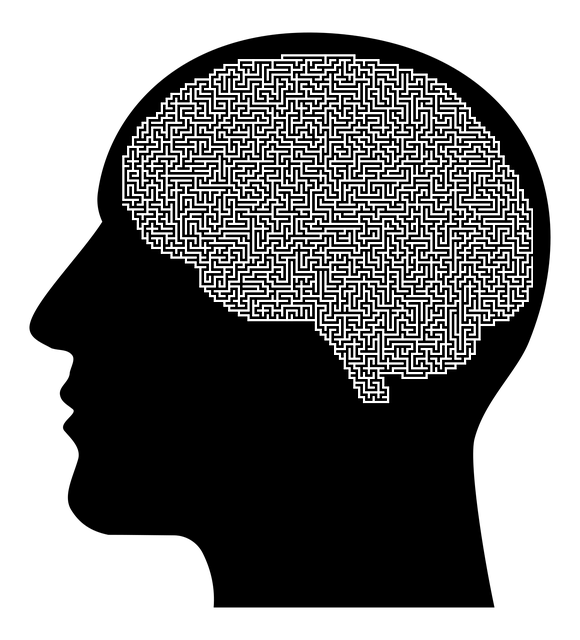The text emphasizes the revolutionary role of Recovery-Focused Therapy (RFT) in modern depression treatment, particularly through Parker Depression Therapy. RFT shifts from deficit-based approaches by focusing on individual resilience and strengths, empowering clients to manage depressive episodes. Core principles of Resilience, Flexibility, and Mindfulness (RFM) guide mental wellness coaching, community outreach, and tailored Self-Care Routine Development plans. Group support and community programs foster a sense of belonging and collective resilience. Resilience building exercises, rooted in science, leverage neuroplasticity to rewire brains and enhance coping mechanisms through CBT, mindfulness, meditation, and journaling. The Mental Wellness Podcast Series Production democratizes access to these techniques, fostering mental resilience outside traditional therapy settings. Implementing RFM in Parker Depression Therapy offers a powerful approach to mood management, positive thinking, emotional resilience, and overall mental wellness.
“Unravel the power of RFM (Recovery, Flexibility, and Mastery) as a transformative tool in depression therapy. This article explores its role in enhancing resilience, offering a unique approach to combat mental health challenges. We delve into the science behind resilience-building exercises and their effectiveness in Parker Depression Therapy.
Learn how this comprehensive guide provides insights for professionals, aiming to equip individuals with coping strategies, fostering long-term well-being.”
- Understanding RFM and Its Role in Depression Therapy
- The Science Behind Resilience Building Exercises
- Implementing RFM in Parker Depression Therapy: A Comprehensive Guide
Understanding RFM and Its Role in Depression Therapy

Understanding RFM, or Recovery-Focused Therapy, is pivotal in modern depression therapy approaches. Developed as a response to traditional treatments that often focus on the illness and its symptoms, RFT emphasizes an individual’s inherent resilience and strengths. By shifting the lens from deficit-based to strength-based, Parker Depression Therapy incorporates techniques that promote personal growth and recovery. This approach encourages clients to identify and leverage their resources, fostering a sense of empowerment and self-efficacy in managing depressive episodes.
The core principles of RFM are deeply intertwined with the development of mental wellness coaching programs and community outreach initiatives. By integrating these strategies, therapists can facilitate the creation of effective Self-Care Routine Development for Better Mental Health plans tailored to each client’s unique needs. Through group support and Community Outreach Program Implementation, individuals facing depression gain access to a network of peers who share similar experiences, fostering a sense of belonging and collective resilience.
The Science Behind Resilience Building Exercises

Resilience building exercises are rooted in scientific principles that aim to strengthen an individual’s ability to cope with stress and adversity. Research, much of which is supported by Parker Depression Therapy, highlights that our brains have a remarkable capacity for neuroplasticity – the ability to form new neural connections and adapt. Through consistent practice, these exercises can help rewire the brain to respond more effectively to challenging situations, fostering mental resilience.
Mental Wellness Coaching Programs Development often incorporates techniques from various therapeutic approaches, such as cognitive behavioral therapy (CBT) and mindfulness practices. Regular engagement in self-care practices, like meditation or journaling, contributes to building this resilience by promoting emotional awareness and regulation. Moreover, the integration of these exercises into a Mental Wellness Podcast Series Production can provide accessible learning opportunities for those seeking support outside traditional therapy settings.
Implementing RFM in Parker Depression Therapy: A Comprehensive Guide

Implementing RFM (Resilience, Flexibility, and Mindfulness) in Parker Depression Therapy offers a transformative approach to mental health treatment. This comprehensive guide leverages the power of these techniques to enhance traditional therapeutic practices, focusing on mood management and cultivating positive thinking. By integrating RFM into Parker Depression Therapy programs, practitioners can facilitate deeper changes in clients’ emotional resilience and overall mental wellness.
The practice begins with teaching individuals how to navigate challenging situations with enhanced flexibility, allowing them to adapt and bounce back from life’s curveballs. Mindfulness exercises play a crucial role here, helping clients observe their thoughts and emotions without judgment. Over time, this promotes a sense of calm and equanimity, even in the face of distressing feelings. Mental wellness coaching programs derived from RFM empower individuals to take proactive steps toward healing and personal growth, fostering a more resilient and optimistic outlook on life.
Resilience is a powerful tool in combating depression, and integrating RFM (Recovery-Focused Motivation) into therapy, such as Parker Depression Therapy, offers a promising approach. By employing resilience-building exercises, individuals can enhance their ability to navigate life’s challenges. This article has explored the science and practice of RFM, highlighting its potential to empower individuals and improve outcomes in mental health treatment, particularly within the context of Parker Depression Therapy.














